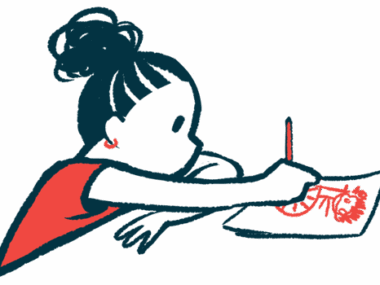I’ve Come to Realize That We’re All in This Fight Together
Written by |

While sickle cell disease is considered a rare disease, and is recognized each year at the end of February during Rare Disease Day, I personally don’t think of it that way. The reason is because it affects millions of people in one way or another.
I believe that conversations about sickle cell disease are generally lacking. I know that many in the black community don’t like to talk about the health conditions that affect us, almost as if it’s a taboo subject. But it is good to see that more people seem to be speaking out about such things, albeit slowly.
It took me a while to start talking about my own health journey, but since starting to do so, I haven’t looked back. As I was thinking about all of this, I realized that we can draw the same conclusions about other chronic illness communities, too.
For example, Instagram has become one of the biggest platforms for sharing my story, and I’ve learned a lot there. I’ve also been introduced to an entire community of people with a wide range of chronic conditions. I’m familiar with some of them, such as diabetes, but not others, such as dysautonomia, a nerve dysfunction. I’ve come to realize that we’re all on the same mission to fight to make our conditions and health struggles more widely known.
It is understandable that people might be concerned only with things that affect them in their personal lives. Oftentimes, people aren’t interested in educating themselves about things that don’t directly affect them. I’ll admit, I was the same way until recently.
While on Instagram, I was browsing through posts with the hashtag #Spoonie, and I realized that many people have conditions that haven’t been given the attention they require. In an ideal world, we would be made more aware of rare diseases earlier on, such as during the science lessons we have as kids.
I would love to see more campaigns about many of these health conditions, which would raise more awareness in the general public. I stumbled across a blog of a woman named Kate who shares her experience with ectodermal dysplasia, which are genetic disorders that involve defects of ectodermal structures such as the hair, nails, teeth, skin, and glands, as the National Foundation for Ectodermal Dysplasias noted.
That was when I realized that the issue is much bigger than just a lack of awareness about people with sickle cell disease. It is an issue that people with chronic illnesses share as a collective.
In response, I have made it a goal of mine to go out of my way to educate myself and bring attention to different conditions, the same way that I want people to pay attention to the reality of what it is like to live with sickle cell disease. Raising awareness isn’t a competition. We all have the same goal, and there is space for us to achieve it while lifting others up, too.
I challenge you to do the same. This week, go out of your way to learn something new about a condition that doesn’t directly affect you. See how you can help someone, or members of an entire community, who face something that doesn’t directly impact your daily life.
***
Note: Sickle Cell Anemia News is strictly a news and information website about the disease. It does not provide medical advice, diagnosis, or treatment. This content is not intended to be a substitute for professional medical advice, diagnosis, or treatment. Always seek the advice of your physician or other qualified health provider with any questions you may have regarding a medical condition. Never disregard professional medical advice or delay in seeking it because of something you have read on this website. The opinions expressed in this column are not those of Sickle Cell Anemia News or its parent company, Bionews, and are intended to spark discussion about issues pertaining to sickle cell anemia.






Leave a comment
Fill in the required fields to post. Your email address will not be published.